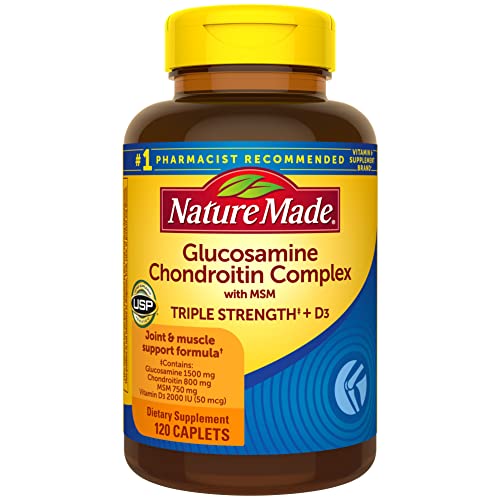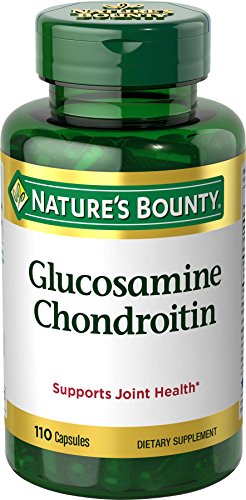Chondroitin for Knee OA: Does It Help Long-Term?
Quick Summary: A large review of studies looked at how drugs like chondroitin affect knee osteoarthritis over at least a year. Chondroitin didn't clearly reduce pain compared to a placebo, but it showed promise in slowing joint damage. Overall, results for pain relief from most treatments were uncertain, calling for more research.
What the Research Found
This 2018 meta-analysis combined data from 47 high-quality trials to check long-term effects of knee osteoarthritis treatments. Osteoarthritis is a common joint condition that causes pain and stiffness, often in the knees, and gets worse over time. Researchers focused on pain, movement, and joint health.
Key results for chondroitin:
- No clear pain relief: Chondroitin didn't significantly lower knee pain over 12 months or more. The effect was small and uncertain (SMD: -0.20, meaning a modest but not reliable drop). Only glucosamine sulfate showed consistent pain benefits after checking for study flaws.
- Protects joint structure: Chondroitin slowed joint space narrowing—a sign of cartilage loss seen on X-rays. This suggests it may help preserve the knee joint (SMD: -0.20, with strong evidence it works better than placebo). Similar benefits came from glucosamine and strontium ranelate.
- Limited info on movement: Few studies checked physical function, so chondroitin’s impact on daily activities like walking remains unclear.
Other treatments like NSAIDs (e.g., celecoxib) had some pain benefits, but uncertainty was high for all drugs versus placebo.
Study Details
- Who was studied: Over 22,000 people with knee osteoarthritis, mostly aged 55-70, and about 70% women. These were everyday patients, not just severe cases.
- How long: Treatments lasted 1 to 4 years, with follow-up of at least 12 months to see real long-term effects.
- What they took: Chondroitin sulfate, grouped as a "slow-acting drug for osteoarthritis." Doses varied across studies (not specified here), often taken as supplements. It was compared to placebos and other meds like painkillers, injections, and glucosamine.
What This Means For You
If you have knee osteoarthritis and are considering chondroitin supplements:
- It might help slow joint wear and tear, potentially delaying the need for surgery or stronger meds. This is good news for long-term joint health, but don't expect quick pain fixes.
- For pain, talk to your doctor about options like glucosamine or short-term NSAIDs, as chondroitin's benefits here are weak.
- Always check with a healthcare provider before starting—supplements aren't regulated like drugs, and results vary by person. Combine with exercise, weight management, and physical therapy for better outcomes. If pain persists, larger studies may soon clarify if chondroitin is worth trying.
Study Limitations
- Varied study quality: Many trials had potential biases, like how they measured results, which made pain findings less reliable when flawed studies were removed.
- High uncertainty: Wide ranges in results mean we can't be sure about small benefits, especially for pain.
- No dosing details: The review didn't specify exact chondroitin amounts or if it was combined with glucosamine, so real-world use might differ.
- Needs more research: Authors say bigger, better trials are essential to confirm if chondroitin truly modifies the disease or just offers minor help.
Technical Analysis Details
Key Findings
This meta-analysis found no significant association between chondroitin sulfate and reduced knee pain over long-term use (≥12 months). However, chondroitin was linked to improved joint structure, as evidenced by reduced radiological joint space narrowing (SMD: -0.20; 95% CrI: -0.31 to -0.07). The study highlighted uncertainty in pain relief efficacy for all pharmacological treatments, with only glucosamine sulfate showing consistent pain reduction after sensitivity analyses.
Study Design
- Type: Systematic review and Bayesian random-effects network meta-analysis.
- Sample Size: 22,037 patients across 47 RCTs.
- Demographics: Mean age 55–70 years; ~70% women.
- Duration: 1–4 years of treatment/follow-up.
- Scope: Evaluated long-term (≥12 months) effects of pharmacological agents, including chondroitin sulfate, on knee pain, physical function, and joint structure.
Dosage & Administration
The study summary did not specify doses or administration methods for chondroitin sulfate. It grouped chondroitin as a "symptomatic slow-acting drug in osteoarthritis" but aggregated data across trials without detailing dosing regimens.
Results & Efficacy
- Pain: Chondroitin showed no significant pain reduction vs placebo (SMD: -0.18; 95% CrI: -0.35 to -0.01 for celecoxib; glucosamine sulfate SMD: -0.29; 95% CrI: -0.49 to -0.09). Uncertainty was high for all pain estimates.
- Joint Structure: Chondroitin sulfate was associated with reduced joint space narrowing (SMD: -0.20; 95% CrI: -0.31 to -0.07), indicating potential structural protection. Strontium ranelate and glucosamine sulfate showed similar structural benefits.
- Physical Function: Limited data (13 trials) precluded definitive conclusions for chondroitin.
Limitations
- Heterogeneity: Trials varied in dosages, formulations, and populations, increasing uncertainty.
- Bias Risk: Many included trials had high risk of bias; results for pain were sensitive to exclusion of these studies.
- Uncertainty in Estimates: Wide credibility intervals for pain outcomes suggest inconclusive evidence.
- Lack of Specificity: No details provided on chondroitin dosing, formulation (e.g., combination with glucosamine), or administration frequency.
- Need for Larger RCTs: Authors emphasized insufficient power to detect small-to-moderate effects across most comparisons.
Clinical Relevance
For individuals with knee osteoarthritis, chondroitin sulfate may offer modest structural benefits (e.g., slowing joint space narrowing) but lacks robust evidence for long-term pain relief. The findings suggest chondroitin’s role as a disease-modifying agent is uncertain, with weaker effects compared to glucosamine sulfate in this analysis. Users should weigh these results against short-term pain management options (e.g., NSAIDs) and prioritize interventions with clearer long-term efficacy. Further high-quality trials are needed to confirm structural benefits and clarify optimal dosing.
Note: This analysis aggregates data from multiple trials without specifying chondroitin’s standalone efficacy; many studies may have tested chondroitin in combination with glucosamine.
Original Study Reference
Association of Pharmacological Treatments With Long-term Pain Control in Patients With Knee Osteoarthritis: A Systematic Review and Meta-analysis.
Source: PubMed
Published: 2018
📄 Read Full Study (PMID: 30575881)




